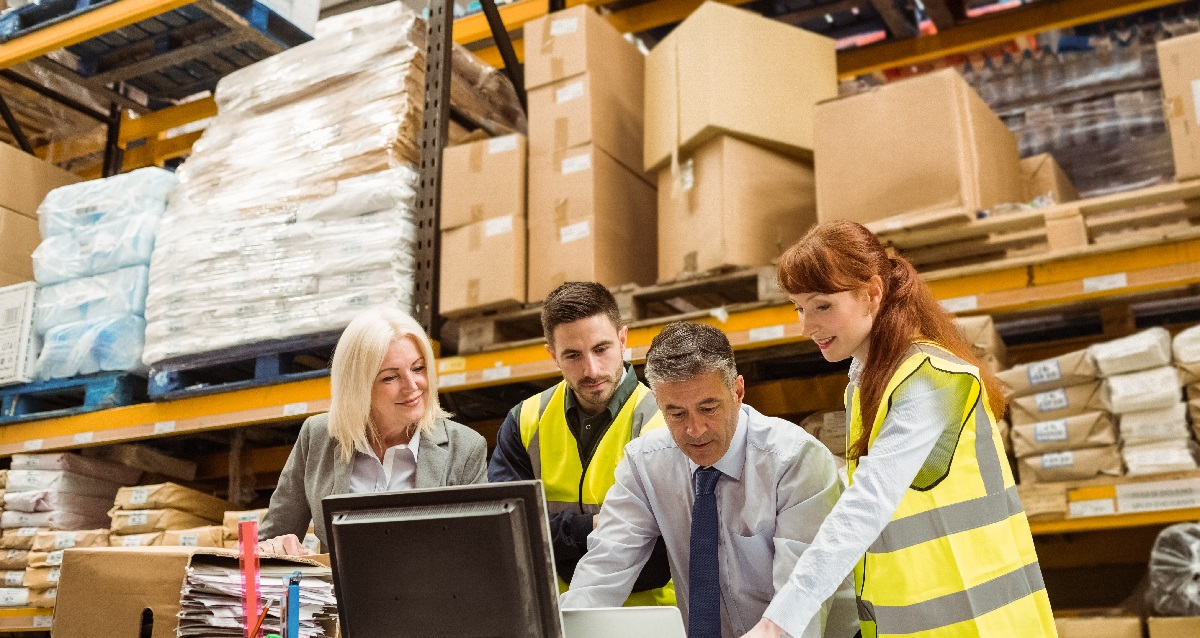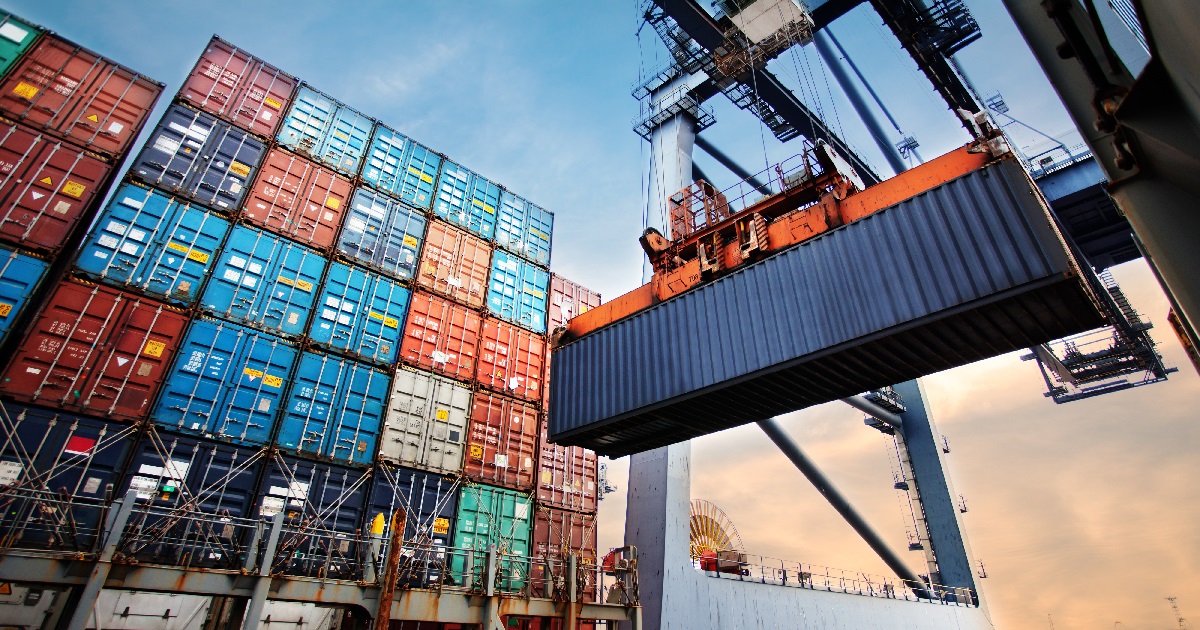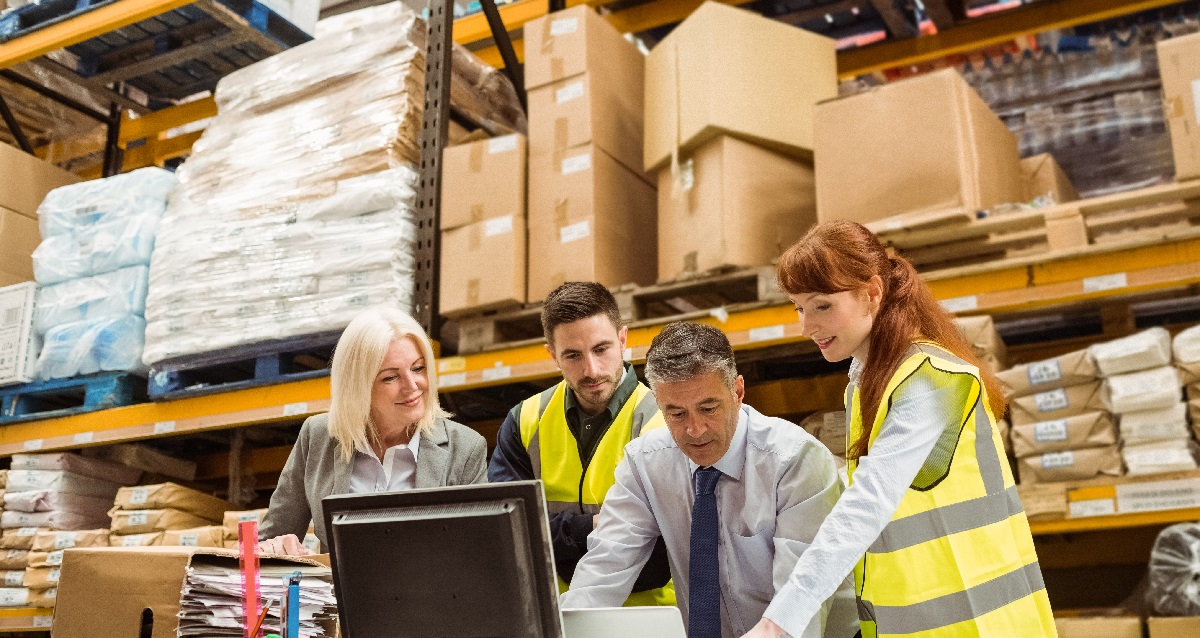
Logistics, Supply Chain
PR Newswire | January 31, 2024
Delta Cargo is excited to announce the launch of its newest product, DeliverDirect, developed in collaboration with SmartKargo. DeliverDirect is a door-to-door delivery service for the U.S. market, offering a competitive and customizable solution for e-commerce retailers seeking to optimize their direct-to-consumer shipping solutions.
With DeliverDirect, Delta Cargo pioneers an innovative domestic carrier approach, providing swift service with transparent pricing for e-commerce and small parcel delivery.
From initial warehouse pickup to delivery at the end consumer's doorstep, DeliverDirect is a fast, seamless, end-to-end service that upgrades traditional ground or air shipping services utilized by most current e-tailers. Small package shippers will benefit from increased shipping speeds, an uncomplicated pricing structure, proactive alert management, transparent tracking and reporting, and access to Delta's vast domestic network.
"We are thrilled to introduce DeliverDirect, our new offer for the small parcel delivery market," shared Alison Ricker, Managing Director, Delta Cargo Global Sales. "Through our strategic collaboration with SmartKargo, DeliverDirect gives e-tailers an alternative transportation solution that fits their customers' requirements, and we envision that this service will prove to be a fast, reliable and cost-effective solution."
The DeliverDirect offering can be tailored to shippers' needs with a variety of service innovations that empower customers to customize according to their unique preferences. These service innovations include: personalized pick-up times, geo-fenced notifications for consumers, multiple delivery attempts, signature-required deliveries, proof of delivery with photos, and access to advanced reporting features for a complete comprehensive service that aligns seamlessly with a variety of needs.
"E-commerce shippers are looking for simple, faster and more reliable alternatives to deliver their products to consumers. Delta Cargo has a vision for small package delivery that will transform the U.S. market and continue to diversify their already robust offering in the air cargo market. Their innovative approach makes them a fantastic partner for SmartKargo, and we look forward to growing this service together," stated Milind Tavshikar, CEO and Founder of SmartKargo.
Read More

Logistics, Supply Chain, Warehousing and Distribution
SSI Schaefer | January 03, 2024
As average global temperatures rise and the demand for cold-chain storage grows worldwide, SSI Schaefer, a global leader in intralogistics and automated warehouses, is sharing best practices and key considerations on how logistics and operations managers can optimize efficiency and cost-effectiveness of cold storage warehouses.
Cold storage warehouse managers -- particularly in the food and beverage industries, but also pharmaceutical distribution -- are facing the need to efficiently and effectively store, pick, retrieve, pack, and ship perishable and sensitive goods, which require special handling, monitoring, and carefully tuned environmental conditions. Yet they face additional challenges -- the cold-chain storage market is expanding, with some reports projecting a CAGR of 9% from 2023 to 2028, meaning that warehouse managers must balance surging demand for cold-stored goods with the increasing need to reduce energy costs and carbon emissions.
"What we are seeing for refrigerated supply chains is this pinch -- a need to do ever more with ever less," notes Carsten Spiegelberg, Managing Director - Middle East & Africa, SSI Schaefer. "To meet the growing complexities of the industry, it's not enough to find a quick fix. Companies need material flow experts with industry know-how to consider all angles of a facility and seamlessly blend cold-chain logistics solutions with individual processes."
Cold chain storage solutions
Careful planning is always the first step in optimizing temperature-controlled infrastructure. To increase efficiency and cost-effectiveness of cold storage warehouses, there are several factors to consider from the beginning.
Optimizing air circulation and product storage density
Since different products and comestibles require different storage temperatures, cold storage warehouse temperatures can range from -34°C to 0°C, with some even reaching 21°C. However, there is often a trade-off between storage density and air flow. Selecting the right storage system that enhances the cooled air circulation while increasing the storage density in the given facility footprint is critical in the planning phase.
Semi-automated solutions for cold storage space optimization
Ideal for deep-freeze facilities for bulk storage in the manufacturing sector and delivering maximum space utilization, channel storage setups with semi-automated drive-in racking systems are an accessible step towards automation, offering high throughput, enhanced safety, and reduced time for workers in refrigerated facilities. Capable of following either the Last in-First Out (LIFO) or the First in-Last Out (FIFO) principle, these systems use channel vehicles like SSI Orbiter® and a corresponding docking station to store and retrieve pallets.
Compared to a static, manual pallet rack system, a mobile racking storage system is an effective way to boost storage capacity in a given space -- by up to 85%, while maintaining full selectivity typically required in distribution centers. This system involves racks that move along floor rails via electric motors to create an aisle only where needed, and it offers smart lighting that only activates in occupied aisles for reducing energy consumption, as well as a night parking option that optimizes rack spacing for maximal cold air circulation.
Future-ready automation systems for a seamless, cost-optimized cold chain
Due to the need for cold goods to maintain strict timetables and a closed cold chain, storage systems must handle incoming goods efficiently and cope with expected and unexpected upticks in demand. The best way to systematically manage the complexities of cold-chain material flows is with a fully automated storage system that seamlessly interconnects components, such as:
Pallets
Automated storage & retrieval systems (ASRSs): The SSI Exyz is an automated high-density storage system with extremely high space utilization, particularly in high-bay warehouses, and it saves 25% of energy compared to conventional machines while functioning across different temperatures.
Shuttle solutions: As a future-proof, fully automated channel storage option, the SSI Lift & Run Shuttle System (SLR) provides simultaneous access to multiple racks for top-tier performance and high storage density.
Other storage types
Shuttle solutions for layer trays: For high-volume picking of goods such as comestibles for shop deliveries, tray shuttles and conveying systems enable fully automated robotic picking or support efficient semi-automatic goods-to-person picking.
Storage solutions for container, bin and carton loads: For loads of varying dimensions, scalable solutions using SSI Miniload, Flexi Shuttle or Cuby maximize storage density while accommodating specific load and performance requirements to support automatic or semi-automatic case and piece picking.
Platforms for central control of refrigerated facilities
Although there are various warehouse automation technologies that track material flows, issues such as coordinating multiple systems often arise and there is a clear need for centralized monitoring and control -- particularly with the complexities of refrigerated facilities. To tie all aspects of a cold storage warehouse together, end-to-end software such as WAMAS® or SAP EWM (Extended Warehouse Management) offer clear visualizations and comprehensive tools to manage processes, resources, and stock levels.
Read More

Software and Technology, Sustainability, Supply Chain
PR Newswire | January 09, 2024
GoBolt, a technology company building the world's largest sustainable supply chain network, today announces it has partnered with Instock on a technology-driven warehouse initiative. GoBolt is already at the forefront of innovation in the logistics industry with its sustainable fleet and proprietary technology and now, by working with Instock, the company continues to blaze a trail in terms of advancing and simplifying logistics.
Instock and GoBolt, united by their shared commitment to technology-driven efficiency and innovation, are partnering to integrate Instock's Automated Storage and Retrieval Solution (ASRS) into GoBolt's fulfillment centers. This collaboration, launching in January 2024, will enhance logistics operations by automating routine tasks, allowing warehouse associates to focus on more complex responsibilities.
"GoBolt is committed to driving innovation in the traditional logistics sector through the development and adoption of groundbreaking technology. That's why our team is thrilled to partner with Instock on this exciting automation project," said Mark Ang, Co-founder and Chief Executive Officer of GoBolt. "In addition to advancing automation and improving efficiency for our brand partners, Instock allows our employees to dedicate their efforts to increasingly complex tasks. This is not only a win for warehouse productivity and safety, but also for employee satisfaction."
Founded in 2020, Instock is a team grounded in deep experience in both engineering and operating technology for retailers in the U.S. and abroad. Their desire for more flexible and agile automation led them to embark on a mission to radically improve goods-to-person robotics with a simplified, soup to nuts rebuild. The result is their Robotics-as-a-Service (RaaS) offering, which delivers high-density goods-to-person automation with a flexible range of throughput rates.
"We're inspired by what GoBolt is achieving for brands and retailers," said Yegor Anchyshkin, Instock's Co-founder and Chief Executive Officer. "Just as impressively, the company is eager to explore and embrace new technologies, like automation, instead of waiting in the wings. When it comes to partnerships, ours with GoBolt is as natural and synergistic as it gets."
Through this partnership, the two dynamic companies will redefine storage density and volume throughput boundaries within defined footprints, and lay the groundwork toward self-service in warehouse automation.
Read More